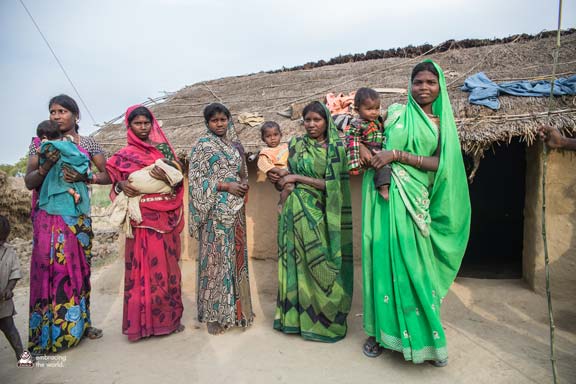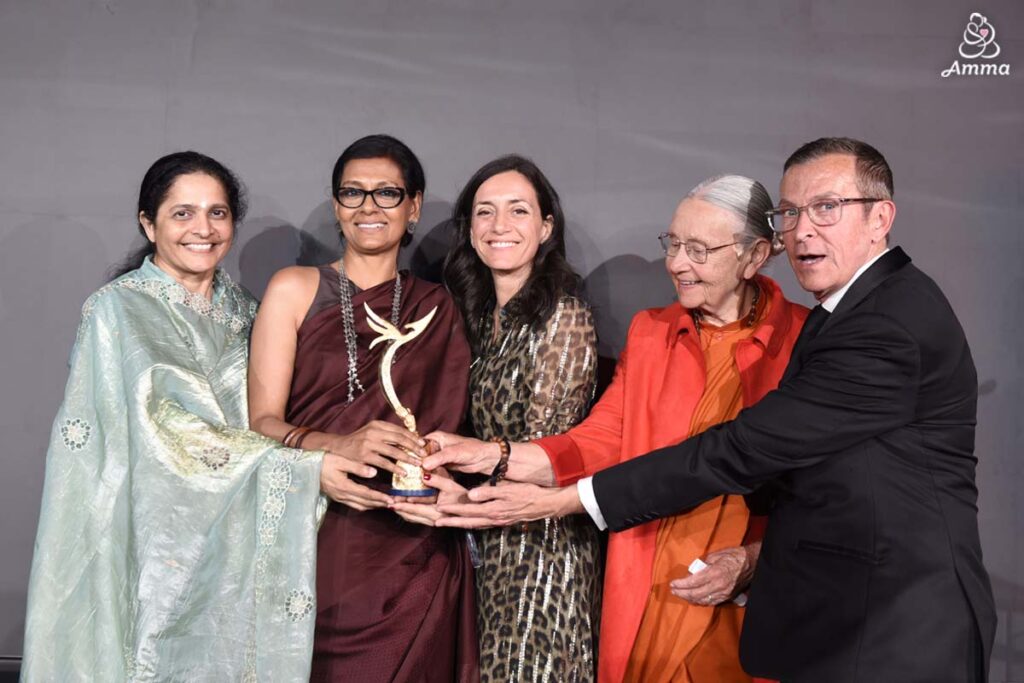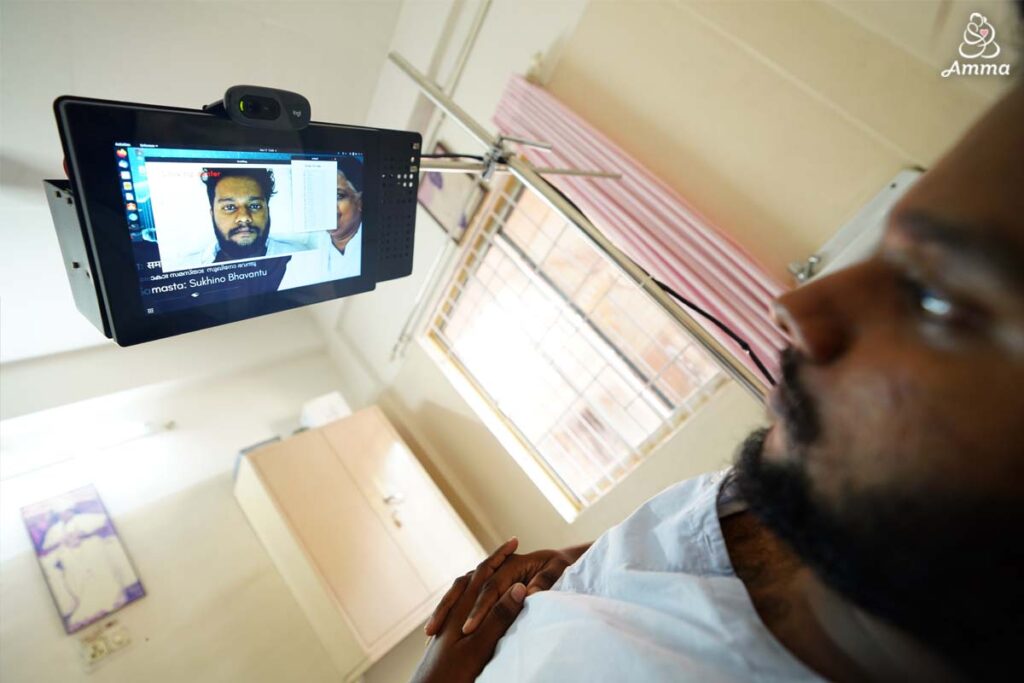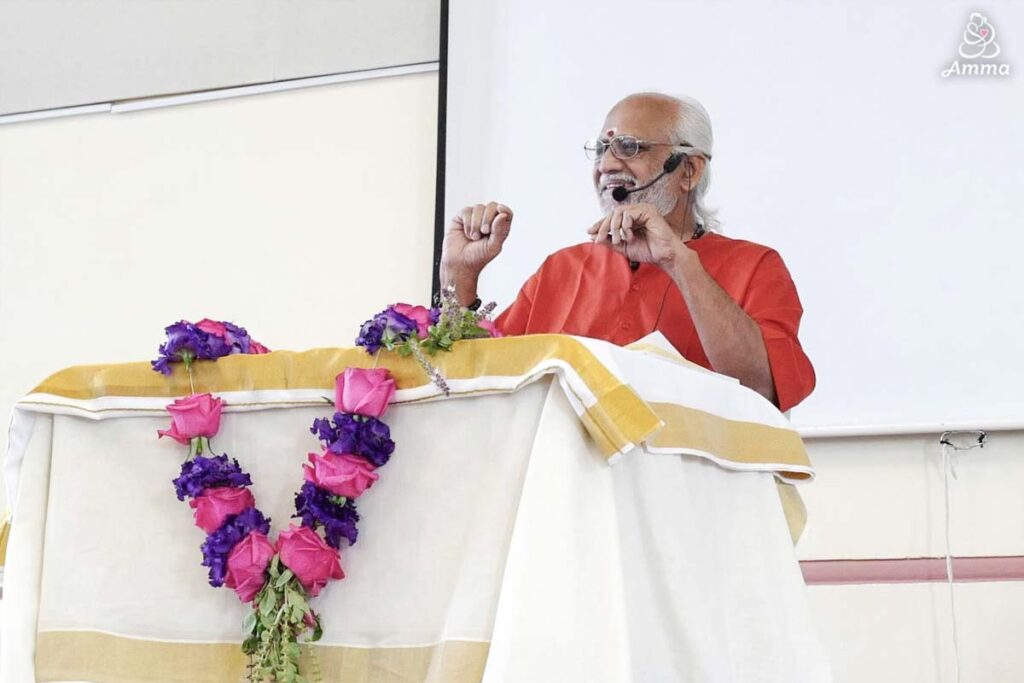Anil was 7 years old when our volunteers opened a tuition (tutoring) center in the village where he lives. Although he was enrolled in the school there, he didn’t go regularly. Just like many other students, he only went occasionally and often just for the midday meal. He was illiterate and hardly bathed. He didn’t notice or mind, that was the only life he knew.
Anil belongs to the Musahar community of Bihar. Our own self-reliant village initiative, Amrita SeRVe is now working with disadvantaged rural communities in 21 states of India. The living conditions of the Musahars are by far, the most deplorable across all the communities that our volunteers have come across in all 21 states. Literacy rates are very low. Only 6% of Musahar men and 2% of women can read or write. The communities are not educated in basic hygiene and sanitation practices.
An estimated 25% of India’s population is categorized as Scheduled Caste (SC) or Scheduled Tribe (ST). The traditional term for this is dalits, which means oppressed. In Bihar, the State Government has defined a new category – mahadalit – meaning, very oppressed. Nowhere else in the country is this term used.

After our volunteers started empowering Anil and the rest of his village, the changes are remarkable. Anil bathes daily. He has learned to read and write both in Hindi and English, and attends school regularly. The end of the school day does not mean the end of learning for him. After school ends at 2:30 pm, the free tuition class begins, which he attends every day. With several other children, he heads to the open air space where class has been regularly held for nearly three years now.
“I still remember when we began. The date was June 9, 2014. We went door-to-door, requesting the parents to send their children, telling them about the importance of education. Although some 40-45 students enrolled, getting them to come to class initially was a major task in itself. We would go around, collect the children and then begin. Most of the children were very untidy. We had to start with basic things and it took a lot of time. Sometimes we would ourselves take them to the nearby river and bathe them. Now not only do they take bath every day and wear clean clothes, they also tell their parents the importance of cleanliness, forcing their parents to keep their houses and the surrounding areas clean,” shares Choti Kumari, 20.

Choti belongs to an upper caste Rajput family living in the same village of Ratanpur where the Musahars live in its two hamlets. She and her colleague Nand Kishore Sharma who jointly run the tuition classes have won the admiration of the entire village for their service. Choti walks a distance of almost 25 minutes to get to the tuition center. The center has held classes every day since it started without missing even a single day. 108 students are now enrolled and the attendance every day varies between 70-90. Even children from the more affluent families in the village have started coming to the same tuition class and learning alongside the Musahar children. This is a huge step forward, given the general attitudes of discrimination against lower castes.
For the past year, Choti has been focusing on improving the lives of the women in the community also. “We started with the children. Slowly there was a change in the mindset of parents also. They seem to have full confidence now in our ability to guide their children. Earlier the children did not know how to interact with adults respectfully. This has changed. Now we are also working with the pregnant women and newborn children, helping ensure that their vaccinations are received on time. Urmila Devi has been appointed by Amma for this purpose as a Swasthy Mitr or health worker. I accompany Urmila Didi to the local PHC (Primary Healthcare Center). Sometimes people ask me why I work so hard. I have learned from Amma – I feel that serving my own people is the real prayer to the Divine.”

Motivating women to become literate, helping them form Self Help Groups, opening accounts in the nearby Grameen Bank and depositing helping them with their monthly collections, educating young mothers about their vaccination schedule, taking them to the nearby health center for checkups and monitoring their food intake quality, leading rallies in the village to bring awareness to different issues – the list of Choti’s tasks is now very long. Educating kids has endeared her to their mothers’ and now the village women listen to seek her out for advice.
There is a marked change in the overall behavior of the people in the Mushar community. Earlier the houses were dirty and surroundings were littered with trash. Alcohol was made at home, and drinking, fighting and violence against women were common. Now things have changed. By educating the children and then focusing on the women, quality of life in the hamlet has started changing for the better. Last year a team from Amrita University installed hand pumps in the village. When our own Amrita University students go, cleanup drives are regularly conducted.
Choti is currently enrolled for her undergraduate degree. Somehow she finds time to do her social work along with her studies. Choti feels grateful to have received the opportunity to serve at such a young age and wants to devote the rest of her life to service.





